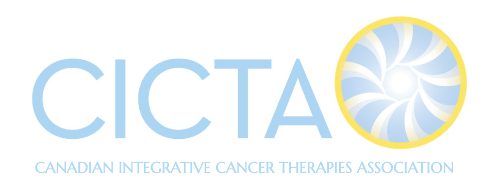Sherman Zhao, MD, PhD
WHAT CONSTITUTES SUPPORT THERAPY?
Most oncology professionals agree that support is a multidimensional construct encompassing provision of therapeutic agents, information, emotional support, material aid, and services. Supportive measures that could improve quality of life include the use of biologically based therapies (erythropoiesis stimulation agents (ESA), G-CSF, etc.), photodynamic therapy and laser, chemical agents treating cancer complications such as bisphosphonates, therapeutic aspects of nutrition, management of fatigue and pain, and psychological care.
BIOLOGICALLY BASED THERAPY
Biologically based therapies are mechanistically dependent on the tumour–host interaction. They exploit our understanding of the malignant process and the host response to it. The increasing use of molecular biological techniques continues to improve our understanding of the pathophysiology of cancer, with the associated definition of potential therapeutic targets. Biologically based therapy can reasonably be divided into immunomodulation, inhibition of metastasis, the promotion of differentiation, cytokine therapy (EPO and G-CSF, GM-CSF) and finally, direct antiproliferative or cytotoxic mechanisms. There is obviously considerable overlap with other treatment modalities, such as endocrine therapy for the treatment of cancer. Immunomodulatory approaches to the treatment of cancer can be divided into non-specific and specific therapies. Recent studies have demonstrated that intravesical installation of BCG for superficial bladder cancer is associated with objective reduction in tumour burden and prolongation of disease-free survival. The induction of interferons after viral infection is correlated with the presence of double-stranded RNA. Following this observation, double-stranded tested. Polyadenylic polyuridilic acid has been shown to have immunomodulatory properties in vitro and antitumour activity in preclinical models.
Perhaps the most widely used cytokines currently in cancer therapy are the colony-stimulating factors, such as granulocyte colony-stimulating factor (GCSF) and granulocyte–macrophage colony-stimulating factor (GM-CSF). These agents are used to stimulate haematopoiesis following chemotherapy or radiotherapy. Erythropoiesis-Stimulating Agents are used for the treatment of chemotherapy -induced anemia: epoetin alfa, epoetin beta (not marketed in the United States), and the longer acting darbepoetin alfa. Other cytokine therapeutic agents such as interleukin-2, Tumor Necrosis Fanctor (TNF) etc. are now in use. Recent works have suggested a role for these agents in tumour development and is the subject of further investigation. Recent years, accumulating evidence demonstrated many traditionally used tonic herbs extract for example Ginseng formulations help improve the general physical status of cancer patients.
BISPHOSPHONATES
Bisphosphonates inhibit osteoclast-mediated bone resorption and have been used to improve outcomes in patients with bone metastasis from solid tumors.16 Patients receiving bisphosphonates may actually experience reduction of pain as well as improvement in mobility and social function.
FATIGUE MANAGEMENT
Fatigue is one of the most common symptoms experienced by cancer patients, whether the fatigue is related to the disease or the treatment or both. In treating cancer, other potential causes of fatigue should be taken into account and appropriate treatments offered for anemia, infection, pain, sleep disorders, and psychological disorders such as depression and anxiety. When fatigue persists despite treating the potential culprits, consider nonpharmacologic approaches such as improved nutritional management and exercise.
PAIN MANAGEMENT
Whilst pain is a concept common to most of us a formal definition is somewhat elusive. The International Association for the Study of Pain has defined this as ‘an unpleasant sensory and emotional experience associated with acute or potential tissue damage or described in terms of such damage’. The cancer patient may have many experiences of pain in their journey with the disease. Surveys suggest that independent of the primary site, fewer than 25 per cent of patients with advanced disease will deny the experience of pain. Indeed ‘for many patients the fear of cancer is the fear of pain’. The overall incidence of pain in patients with advanced cancer is 60 to 70 per cent of which 75 per cent will be directly attributable to the malignancy.
There are different forms of pain, and many can be controlled with traditional analgesics such as opioids and nonsteroidal anti-inflammatory agents. Adjuvant analgesics are also available and are often used as first-line treatment in non-malignant chronic pain and as second-line when opioid therapy has been optimized. More and more cancer patients are likely to try alternative medicine for the relief of pain and some seems effective. Among them, acupuncture, and general improvement with traditional Chinese medicine (Ginseng products etc.) are the most popular.
PSYCHOLOGICAL CARE
In the 1980s studies which used rigorous, standardized psychiatric assessments confirmed that the diagnosis and treatment of cancer in adults was associated with a substantial morbidity. Major depressive illness, generalized anxiety disorder, and adjustment disorders were found in up to a third of patients. This represented an increased relative risk of three times the prevalence of affective disorders in the general population. Body image problems and sexual difficulties were also found to be more common in cancer patients. Organic confusional states were evident in up to 10 per cent. Even when cancer patients were free of disease and no longer on treatment, a substantial minority failed to return to their former level of psychological, social, and occupational adjustment and experienced a persistent impairment in their quality of life. Patients often have a complexity of physical symptoms associated with cancer and its treatment (fatigue, pain, nausea, anorexia), psychological stress of the cancer illness (depression, anxiety), and the social interaction with family, friends, and the work environment. A psycho-oncology service may be available in some cancer centers and community hospitals and can be a valuable resource throughout all phases of care, including end-of-life.
COMMUNICATION
The basic requirements for establishing the success of any interaction between doctors and patients are that the information relayed is at least adequate, understood, believed, remembered, and, hopefully, acted upon. Unfortunately, many studies show that these criteria are seldom achieved.
The reasons for poor communication are complex and include certain personality and attitudinal characteristics of both patients and doctors, as well as difficulties created by the system of cancer care delivery. Some studies suggested giving patients a personal record of their consultation in the form of audiotapes, and early descriptive studies reported that patients found these recordings very valuable both for themselves and their family. Personal recordings allowed patients to remind themselves of what was said and, furthermore, helped inform family and friends about treatments and diagnosis. It is also a simple, unobtrusive, and inexpensive practical intervention to help patients make sense of their situation.
CONCLUSIONS
The management of cancer has improved in recent years through the introduction of improved therapeutics and supportive therapeutic methods. While life-extending treatments (with chemotherapy, hormonal therapy, or biologic and targeted therapies) and adjunctive treatments (with G-CSF, GM-CSF, erythropoiesis-stimulating agents and bisphosphonates and many other biological agents) are important, it is equally important to optimize management of fatigue and pain and provide psychological support to the patients. Accumulating evidence indicated the effectiveness of complementary medicine and integrative therapy in treating cancer as well as the wellness of cancer patients.
Correspondence to: Sherman Zhao, MD, PhD
Email: Sherman_zhao@hotmail.com

